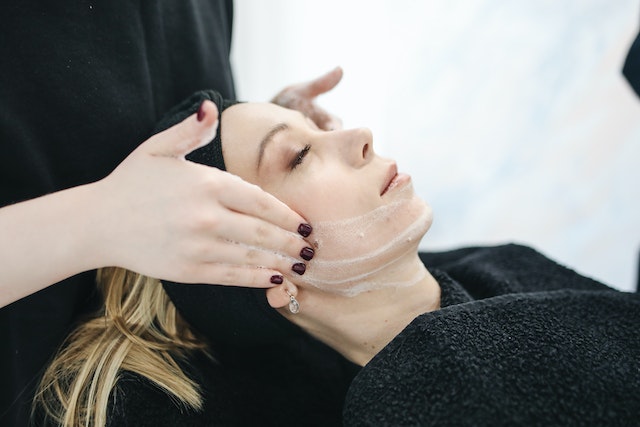THIS ARTICLE IS ABOUT WHAT IS COLD CREAM?

Many women grew up watching their mothers and grandmothers apply cold cream every night while enjoying the benefits it provided to their skin. But until recently, cold cream seemed like a thing of the past rather than a skincare classic. Its modern resurgence, however, has many of us wondering what cold cream is used for and does it work? Turns out our matriarchs might have been onto something after all!
Simply put, cold cream is water-in-oil emulsification that feels cool to the touch when applied to the skin. But it is important to note the order of these words to understand what makes this product different from others. The water-in-oil distinction is important to the composition of the cold cream formula, as oil-in-water goat milk products tend to wash off or be quickly absorbed into the skin when applied. Cold cream, on the other hand, usually consists of four main ingredients, including water, oil, an emulsifier, and a thickener, with the amount of water and oil being in approximately equal proportions. but it cannot be absorbed as deeply into your skin as water-based products. Due to the high concentrations of mineral oils and waxes, such as beeswax or ceresin, the cream tends to lay on your face more like a face mask than a face moisturizer.
While our skin health experts at Kate Somerville emphasize that skincare products are either A. hydrating with water or B. hydrating with lipids, Cold Cream provides both skin care benefits. skin in one product! The water mentioned above does the job of hydrating the skin while the oils act as a moisturizer, sealing in the moisture.
Benefits of cold cream
The benefits of cold cream are quite simple. By design, Cold Cream is intended to topically hydrate the skin, so anyone looking to boost their skin’s hydration can benefit from using this product. However, those with particularly sensitive skin or dry, itchy skin will benefit most from its daily use to improve the texture and appearance of their complexion. These effects are likely the result of cold cream’s ability to help restore the skin’s effectiveness as a natural barrier to the environment, which is lost when your skin is too dry.
Uses of cold cream
Despite being designed as facial moisturizers, cold creams are very versatile and can be used in a variety of ways. First, one of its most popular advantages is as a makeup remover. Thick oils can gently melt away makeup and dirt, allowing them to be removed with minimal damage, rubbing or chafing. Likewise, some find it effective as a primer for cosmetic foundations as it smooths the skin. And allows makeup to be applied more evenly to the face. Since it removes makeup without water. Kelly says it’s even a great product to take camping. Or on trips where you can be away from your sink or shower!
Finally, cold creams can also be effective as lip balm, body lotion or even shaving cream. Using a cold cream on your lips helps lock in vital moisture and hydrate sensitive lip skin all day long. Likewise, applying moisturizing cold to your body provides. The same intense hydration that the cream is designed to provide to your face. But to your arms, legs, back and hands.
Cold cream products
Although the word cream is in the name, cold cream products like goat milk soap come in two popular forms: cleansers and moisturizers. A cold cream face wash is designed to replace your normal daily face wash by treating. And cleansing your skin at the same time. Cleansers are the skincare products that are most used as makeup removers if desired. Relatively, cold cream lotions are meant to be massaged into your skin to keep it hydrated during the day.
Whichever product you choose or how you decide to incorporate it into your skincare routine. Cold creams are a powerful option when you need intense hydration for your skin. Whether you suffer from chronic dry skin. Or just need a little extra hydration during the harsh winter months. Cold creams can help revitalize the appearance and texture of your skin. Even if it’s is not on your face. According to Kelly, most skin types can benefit from this product, but acne-prone skin might not be the best suited.




